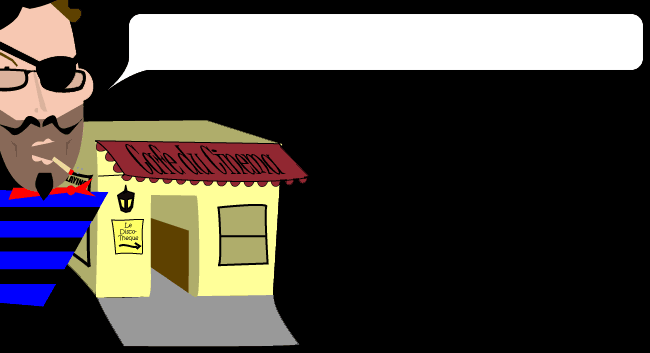by Brian.
Throughout the history of film, very few directors have attained everyday notoriety. People on the street knew D.W. Griffith, Alfred Hitchcock, George Lucas, and Steven Spielberg, but very few others. After seeing Cast Away, I'm convinced that Robert Zemeckis knows he is not on this prestigious list, and is very angry about it.
Was it a risk or a challenge from its inception? A thrilling internal epic about a man obsessed with time forced into timeless isolation: A challenge to the writer, director, and star, for perhaps the hardest story for all three to tell through cinema is a man alone with his thoughts. Risks for the studios, marketing department and Hollywood at large, who all place a very large bet on something very different.
Despite valiant and vain efforts, these factors cripple the film. In the first act, everything is hurried, knowing that we need to hear all of this information before he crashes. We spend twenty minutes being force-fed character drama, a boot camp for what lies beyond. Now this is not without its charm, certainly Tom Hanks helps, but again, we all know what's coming. The crash is handled well, if not a bit too vague and long winded. A certain shot of Hanks in the stormy night comes to mind as being about thirty seconds too long. The true meat of the film comes with Hanks on the island. We see him survive, which is really quite entertaining. Tom Hanks is clearly the best part of this film, as he makes us believe his pain, confusion, bewilderment, and ultimate isolation. The direction on the island however is very showy, striking attention away from Hanks and toward its own grandstanding movement. In other situations, I might praise this technique, but not here. Once Hanks returns to civilization, one gets the distinct feeling that the writer and director are making up for all that silence with much more dialogue than we need. Several last-act monologues, explaining the character's growth and therefore the entire theme of the film, are both overtly blatant and unnecessary. Although writer William Broyles Jr. and Zemeckis don't completely repay their debt to conventional Hollywood filmmaking by keeping their end ambiguous, it's not enough to bring back the severe cop-outs that we've just sat through. If this team truly wanted to make a groundbreaking film, they should have stuck by their guns.
Although this film is hard to place, I would compare it with an overly tannic, early-harvest Pinot Noir. It's clear that it tries to be something special, but it's obvious that the balance is not right.
On a final note, it's impossible to discuss this film without blaming part of its failure on the trailer. The first teaser release was fine, but the second, full trailer, showed every major scene. In a film such this, we don't need to see much to get excited about it. Why show any more than you have to? Zemeckis should look into cutting his own trailers in the future, for his films could use it.
back.
Varietal: Full-Flavored Red
Vintner: Robert Zemeckis
Vintage: 2000
Vineyard: Fox/Dreamworks
